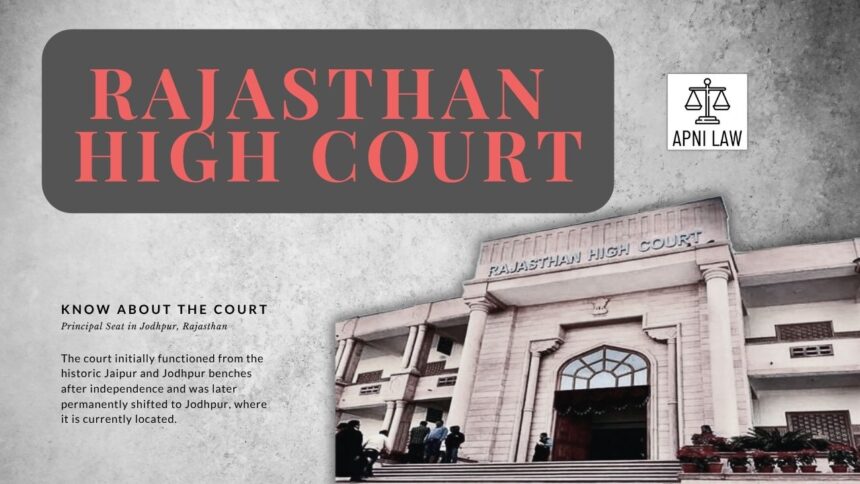Introduction
In a recent decision, the Rajasthan High Court held that adult children, even if married, do not possess a legal entitlement to reside in their father’s self-acquired property without his consent. The court emphasised that such stay is not a right automatically conferred by family relationship or long-term residence. The judgment underscores the distinction between ancestral property rights and permission-based occupancy under parental benevolence or affection.
Facts of the Case
The dispute arose when a father filed a suit seeking possession and vacation of part of his house from his son, who had been living there with his wife with the father’s permission. The property was purchased in the father’s sole name from his personal funds, and it was not held under the Hindu Undivided Family (HUF) structure nor treated as ancestral property. The son contested by claiming coparcenary rights, stating that his occupation amounted to sufficient possession to assert entitlement. The trial court and the first-appeal court both decreed in favour of the father, ordering the son’s eviction. On the second appeal, the Rajasthan High Court re-examined whether the son had a legal right to remain.
What the Court Says
The court reaffirmed the well-settled legal principle that a father’s self-acquired property is his exclusive domain unless he has validly transferred rights or created legal partnership. The son’s occupation was acknowledged to stem from permission granted by his father out of affection and parental duty, but this did not elevate it into a legally protected right. The court held that once the father chose to revoke the permission and seek eviction, the son, as a mere gratuitous licensee, did not have the standing to resist the suit.
The court further noted that the father’s use of a mandatory injunction to evict his son was appropriate in this context, given the father never lost possession and the relationship was not one of landlord-tenant or formal occupancy. In rejecting the son’s attempt to couch his claim as one of coparcenary right, the Court pointed out that the evidentiary record clearly showed the property was not part of an HUF and was acquired solely by the father. Additionally, the court expressed concern that the litigation appeared to amount to harassment by the son of his father, thereby undermining the honourable relationship that exists between parent and child. As a result, the court imposed an exemplary cost of ₹1 lakh on the appellant (the son) for pursuing the appeal.
Conclusion
The Rajasthan High Court has made clear that the mere fact of being a son or married adult child does not automatically entitle one to stay in one’s father’s self-acquired property. Legal rights of residence must arise from valid inheritance, transfer, partition or codified coparcenary interest — not simply familial affection or permissive occupancy. When the father withdraws consent, the occupier’s status reverts to that of a licensee, and no independent claim to the property survives. This ruling reinforces the principle of autonomy over self-acquired assets and the limited protective scope afforded to non-coparcenary family members in such settings.







